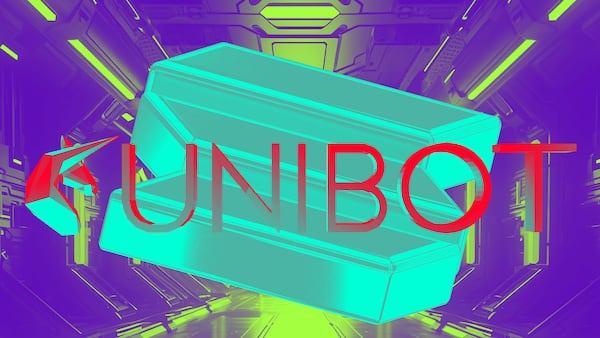- Solana's new token extensions add features that normally would have only been possible with smart contracts.
- Many of the extensions will help companies deploying tokens on Solana adhere to their internal compliance processes.
- Others allow users to make the amount of a token sent in a transaction private.
In a bid to attract traditional businesses to the Solana blockchain, a series of 13 new features, dubbed token extensions, give companies more control and flexibility over tokens they issue.
Token extensions give token issuers on solana added features that normally would have only been possible with smart contracts.
Businesses can use token extensions to establish specific rules governing who can interact with their tokens, for example by limiting transfers to people who have passed anti-money laundering and know-your-customer checks.
Despite growing institutional interest in crypto, some companies are staying on the sidelines, fearful of inadvertently stepping over legal boundaries amid a regulatory onslaught.
“A growing number of enterprises are interested in the benefits of blockchain, but want to ensure that they can adopt the technology in a responsible way that adheres to their internal compliance processes,” Amira Valliani, Head of Policy at the Solana Foundation, said in a statement.
Because these features are set at the token level, companies no longer have to spend significant amounts of time and money to add a specific functionality for their token by creating their own smart contracts.
Although the announcement was only made official today, there are already a number of Solana ecosystem projects using these new features.
New possibilities open up
Of the 13 extensions, two of the more important give token issuers the ability to dictate how users can interact with a token or hide how much is being transferred between users, according to Jon Wong, Head of Ecosystem Engineering at the Solana Foundation.
Some Solana ecosystem projects have already integrated these new features, including popular wallet providers Phantom and Solflare and a popular Telegram trading bot and decentralised exchange, Fluxbeam.
Paxos, a project building regulated blockchain and digital asset products, has added several extensions to their dollar-pegged stablecoin USDP, which has a total circulating supply of over 360 million.
Using these token extensions, Paxos can transfer or remove tokens from anyone who holds the USDP token.
Furthermore, they have the ability to blacklist any entities who are acting nefariously or may fall under sanctions, a feature already used by the two largest stablecoins, USDC and USDT, on Ethereum.
Another stablecoin issuer, GMO Trust, plans to use some of these token extensions in a pair of upcoming stablecoins, which are set to launch on February 14.
By combining token extensions, projects can create permissioned ecosystems within a permissionless blockchain.
For example, a business can limit transfers to users who have passed know-your-customer checks or require users to include a memo with each transfer, adding additional context to transactions.
Companies can use extensions featuring zero-knowledge proof technology to pay employees without revealing the total transfer amount.
This makes sensitive financial information like payroll private, allowing individuals to receive their salary in crypto without broadcasting the amount for the world to see.
Solana’s token programme
Token extensions are one of several upgrades to come out of Token 2022, a Solana Foundation-led effort to make development on the blockchain more intuitive and less fragmented.
Token 2022 has, among other things, unified fungible and non-fungible tokens on Solana, ensuring seamless interoperability with smart contracts and wallets within the Solana ecosystem.
However, transitioning to the Token 2022 standard requires the burning of previous standard tokens and is a user opt-in process, presenting a strategic decision for token creators and users alike.
Looking forward, Solana’s roadmap includes the introduction of further Zero-Knowledge features in Spring 2024.
Ryan Celaj is DL News’ New York-based Data Correspondent. Reach out with tips at ryan@dlnews.com.







